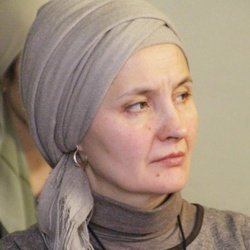Expanding opportunities for Hajj: Tatarstan pilgrims do not have to go for visas to Moscow anymore
What will Consulate General of Saudi Arabia bring for the Republic of Tatarstan?
The Consulate General of the Kingdom of Saudi Arabia is opening in Kazan. This news was first reported by Saudi officials, then this information was confirmed in the Kazan Kremlin to Realnoe Vremya. At the same time, there has already been talks that Wahhabi (and Salafi) ideology can penetrate the region. However, experts refute these fears.
“Negotiations are underway at the level of the ministry of foreign affairs”
It has become known that Saudi Arabia is opening a Consulate General in Kazan.
This information was confirmed to Realnoe Vremya in the Office of the Russian Foreign Ministry Representative in Kazan. However, the timing and location are still unknown.
“Negotiations are underway at the level of the ministry of foreign affairs so that all formalities were observed. We, in this case, are engaged in economic and household nuances on the selection of premises for the office of the Consulate General. So far, there are no specific sites,” Kazan Kremlin’s representative Lilia Galimova told our correspondent.
Earlier, Minister of Energy, Industry and Mineral Resources of the Kingdom of Saudi Arabia Khalid Al-Falih noted that Saudi Arabia was making every effort and represented all measures to facilitate the visa regime for Russian Muslim citizens who commit Hajj. To this end, the leadership of the KSA decided to open its representative office in the capital of Tatarstan.
To date, six foreign diplomatic missions — of Turkey, Iran, China, Hungary, Kazakhstan, Belarus — operate in Kazan. Now Saudi Arabia is next in line. Besides, honorary consuls of France, Spain, Macedonia, Namibia and Belarus work in the capital of Tatarstan.
“Now we have to go for visas to Moscow”
This idea was enthusiastically received in the Muslim Spiritual Board of the Republic of Tatarstan (MSB RT). As Ilfar Khasanov, the deputy chairman of the MSB RT, imam-khatyb of the Kul-Sharif Mosque, explained to Realnoe Vremya, the opening of the Consulate General will not only promote the development of inter-state relations and intercultural cooperation but will also be a good help for the Muslims of Tatarstan and neighbouring regions.
“If this takes place, then there will be more opportunities for Hajj and Umrah (small pilgrimage to Mecca). It is important not only for our republic. Our co-religionists live in neighbouring regions (Bashkiria, Chuvashia, Mari El). Now we have to go [for visas] to the Saudi Arabia Embassy in Moscow,” Ilfar Hazrat said.
Thus, the accredited tour operator MSB RT Hajj, as well as other Hajj companies, has to send documents to Moscow from year to year. In the future, pilgrims' visas can be obtained “without leaving home”.
To date, the MSB RT interacts with the kingdom only in the field of pilgrimage. As for education, the MSB RT is not planning to work with the Saudis in this direction as “we have our own Hanafi madhhab, they have the Hanbali one”, and the theological schools are different. Besides, Tatarstan has its own higher spiritual and educational institutions — Bolgarian Islamic Academy, Islamic Institute, madrasah.

“We have the stereotype that Saudi Arabia is a Wahhabi state”
At the same time, Khasanov does not see the danger of spreading Wahhabism through the future consulate of the monarchy.
“They themselves claim that they have abandoned this ideology [Wahhabism] and strive for the middle way. They realized that these ideas are abnormal and utopian. Moreover, they have the embassy in Moscow, and from there they spread nothing,” emphasizes the deputy mufti.
His words are confirmed by Rezeda Safiullina. She drew attention to the trend of “deWahhabization” of the Saudis.
“We have the stereotype that Saudi Arabia is a Wahhabi state. There are also many different directions in the Wahhabi camp — moderate and radical ones. They have a very motley picture in the country, there are also Sufi sheikhs. The jihadist ideas are condemned in the kingdom.
She stressed that the Muslims of Tatarstan cannot but interact with the KSA because it is the country where the Hajj is committed, there are Islamic shrines — the Kaaba, Prophet's Mosque, the graves of the companions, etc.
“Tatarstan is strict with different Islamic directions. Authoritative imams with Salafi views were removed from their posts. Now in general, hazrats behave cautiously,” said Safiullina.
Billions invested
It should be noted that the first portent came a week ago when Minister of Energy of Russia Alexander Novak allowed the opportunity to open trade missions in the territory of both countries. Khalid Al-Falih made his statement after the decision of Russia and the KSA to simplify the visa regime for business representatives of both countries.
As explained by Alexander Novak, the parties agreed to improve the regulatory framework, which would “remove restrictions on the movement of our participants in commercial relations, the visa regime”. According to him, it is necessary to remove administrative barriers for the citizens of both states.
Moreover, it has become known that Riyadh is planning to invest billions of dollars in the Russian economy, and in response, Moscow will make similar investments. We are talking about participation in joint programmes in the fuel and energy sector. One of the discussed projects in the field of petrochemistry between Russia and Saudi Arabia is a possible joint venture between Sibur and Saudi Aramco.
In 2018, the Middle East monarchy invested more than 2 billion rubles in Russian projects.